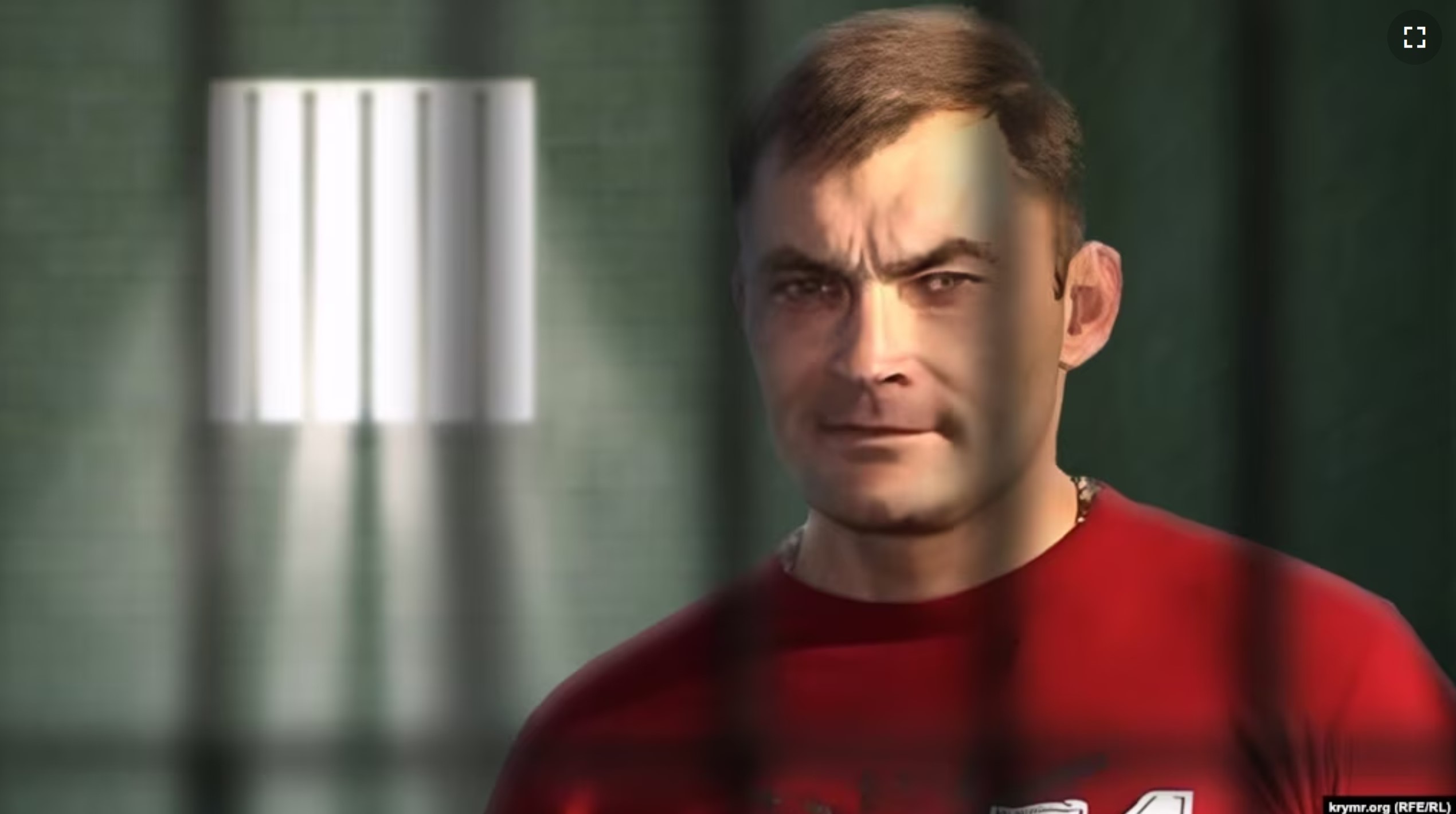Ukrainian jailed for a year in occupied Crimea for 'discrediting Russia's army'

The occupation ‘Kievsky district court’ in Simferopol has sentenced Dmytro Kozlia to a year’s imprisonment on a charge of ‘repeated actions aimed at discrediting the Russian armed forces.’ Virtually nothing is known about the ‘hearing’ as something termed ‘anti-terrorist security’ is being cited as the excuse for closing the ‘court’ to those who are not direct parties to a case (including activists from Crimean Process who reported the sentence).The ruling has also not been published, with it known only that the first hearing on 13 September was adjourned, and sentence passed at the second, on 19 October.
Dmytro Kozlia is a local businessman who was first prosecuted back in May 2022 under the draconian silencing laws adopted immediately after Russia’s full-scale invasion of Ukraine,
Then too, he was accused of having ‘discredited the Russian army’ through comments on Facebook, but that initial prosecution was under Article 20.3.3 § 1 of Russia’s code of administrative offences. On 31 May 2022, the same ‘Kievsky district court’, under ‘judge’ Mikhail Nikolaevich Belousov, predictably, found him guilty, and imposed a fine of 45 thousand roubles.
Of the four new ‘offences’ introduced into Russian legislation 10 days after the full-scale invasion began, two cover essentially the same alleged acts (of ‘discrediting’). The administrative charge under Article 20.3.3 has been repeatedly used in occupied Crimea to fine or briefly jail people not only for negative comments on social media about Russia’s war against Ukraine, but even for playing a Ukrainian patriotic song or displaying the Ukrainian flag. Although the criminal charge under Article 280.3 of Russia’s criminal code tends to be used over actual criticism of the war, the wording of the two articles is almost identical. The criminal charge is laid if a person has already been convicted on the administrative charge and is considered to have to have ‘committed the same offence’ within a year.
In its statement on 15 September 2023 declaring Kozlia a political prisoner, the Memorial Support for Political Prisoners Project noted that the second prosecution, over supposed ‘repeated actions aimed at discrediting the Russian army’ under Article 280.3 § 1 of the criminal code, had been reported by OVD.Info on 27 July. It was not, however, known what particular comments or pronouncements had been deemed to warrant the criminal charge (which carries a sentence of up to three years’ imprisonment). Since 27 July was over a year after the first conviction on ‘discrediting’ charges, it was possible either that there had been another administrative prosecution in between, or that the new charge had been laid earlier.
This, typically, is one of the many prosecutions in which Aleksandr Talipov, a notorious collaborator and his Crimean SMERSH vigilante group / social media channels clearly worked closely with the Russian enforcement officers. On 27 July 2023, the Crimean SMERSH Telegram channel and VKontakte page posted a video in which armed and masked OMON [Russian ‘riot police’] can be seen violently forcing Kozlia to the floor and detaining him.
Kozlia was remanded in custody for two months with this detention upheld by the occupation ‘Crimean high court’ on 9 August 2023. There is nothing to suggest that he was later released, and presumably the sentence, if upheld, will be backdated to the end of July.
Memorial is in no doubt that Kozlia is a political prisoner, whatever comments were used to trigger the prosecution. The charge laid against him, of ‘repeating actions aimed at discrediting the Russian army’ (Article 280.3), Memorial stresses, violates his right to freedom of speech and to a fair trial, and is aimed at silencing voices opposing Russia’s war against Ukraine.
It was also learned on 30 October that Danylo Seryohin, another Ukrainian imprisoned on similar charges, had been sentenced to 18 months in a low-security prison colony. In his case, the prosecution added a charge of ‘possession of marihuana’., however small amounts of narcotics or other illegal substances are often planted by those carrying out a ‘search’, and Seryohin should undoubtedly also be viewed as a political prisoner.
See: Crimean imprisoned for ‘discrediting Russia’s army’ and its war crimes in Ukraine on social media





